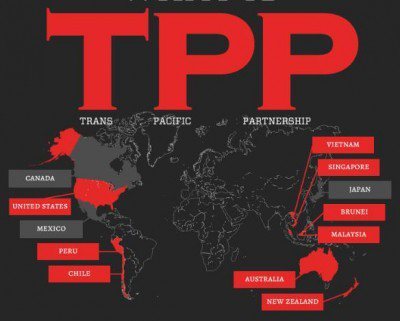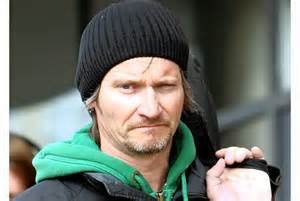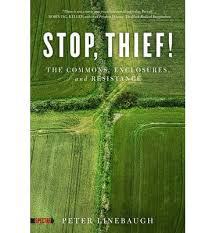Stuart Jeanne Bramhall's Blog: The Most Revolutionary Act , page 1324
August 7, 2015
Greek Forces to Train in Israel as Syriza-Led Government Deepens Alliance*
*
*
Quite shocking how quickly Greece’s so-called populist leftist government abandons the Palestinian people and shows its true colors. Great article from the emperor has no clothes department.
 Originally posted on Hwaairfan's Blog:
Originally posted on Hwaairfan's Blog:
Greek Forces to Train in Israel as Syriza-Led Government Deepens Alliance*
This was predicted by Credo Mutwa…
By Ali Abunimah
 Greek, along with Italian, military forces are soon to train in Israel.
Greek, along with Italian, military forces are soon to train in Israel.
This is the latest indicator of the deepening military alliance being forged between Israel and Greece’s government led by the leftist Syriza party.
Last month, Israeli helicopter pilots completed an unprecedented 11-day combat training exercise near Greece’s Mount Olympus.
In May, the Syriza-led government also signed a military accord with Israel, matched only by a similar one between Israel and the US, granting legal immunities to each other’s military personnel while training in the other’s territory.
 An image posted by the Israeli air force shows an Israeli pilot embracing a Greek colleague. The Israeli’s face is obscured in the original.
An image posted by the Israeli air force shows an Israeli pilot embracing a Greek colleague. The Israeli’s face is obscured in the original.
The military deal was signed on behalf of the government by Panagiotis Kammenos, the defense minister…
View original 665 more words


August 6, 2015
The Poetry of Dispossession
Trudell
Heather Roy (2005)
Film Review
Trudell is a documentary about the life and work of American Indian Movement (AIM) activist, poet and philosopher John Trudell. The film is made up of archival and performance footage, interviews with Trudell, family members and film and rock celebrities who have worked with him, and samples of his poetry.
Stop Thief: the Commons Enclosures and Resistance (see Forgotten History: the Theft of the Commons) has helped me understand the Indian Wars and the continuing oppression of Native Americans in a whole new light. As author Peter Linebaugh describes it, the Indian Wars boil down to a determination by Jefferson and other early US leaders to enclose (ie steal) Indian lands to fence them off as private property. And as Trudell emphasizes in this film, repeated treaty violations all revolve around US efforts to steal yet more Indian land and resources for profit.
Trudell’s Role in AIM
Trudell first became an activist in his early twenties, with the Native American occupation of Alcatraz in 1970-71. The federal government declared Alcatraz Island surplus property after closing the prison in 1973. Trudell and his fellow activists claimed it under provisions in the 1868 Fort Laramie Treaty, which promises Native Americans access to unused federal land.
He eventually became secretary of AIM in Minnesota and helped organize the Trail of Broken Treaties occupation of the DC Bureau of Indian Affairs office in 1972. He also helped organize the AIM defense against the FBI siege on the Pine Ridge Reservation in 1973. The standoff at Wounded Knee related to yet another treaty violation, in which the federal government allowed mining companies to mine for uranium on tribal land. In one interview, Trudell reminds us that 50-70% of all US energy resources are on native lands. Their extraction nearly always violates US treaty commitments. Worse still, radioactive contamination from uranium mining is a major factor in the high mortality rate at Pine Ridge and other reservations.
When the residents of Pine Ridge tried to block the mining companies, the FBI sent in paramilitary units equipped with helicopters and tanks in addition to covert death squads. Between 1973-76, Pine Ridge had the highest murder rate in the country.
In 1975, following a fire fight that killed two FBI agents, AIMS members Bob Robideau, Darelle Butler and Leonard Pelletier were charged with murder. Robideau and Butler were tried in Cedar Rapids, where AIM enjoyed strong public support. They were acquitted on self-defense grounds. Pelletier, who was tried in Fargo, was prohibited from using their acquittal in his defense. He remains in prison to this day.
A Suspicious House Fire
In 1979, Trudell’s wife and two children were killed in a house fire he believes was started by the FBI. Between 1969-70, the FBI compiled a 17,000 page dossier on him. They also made a direct threat to go after his family.
He began writing poetry as a way of coping with the emotional turmoil of losing his family. His first albums were spoke word against a background of indigenous chants. He later worked with prominent rock artists who set his poems to music.


August 5, 2015
Obama Sells Out Human Health and the Environment By Making Nuclear Energy a Centerpiece of Climate Policy
*
*
The sleezeball has outdone himself by making nuclear energy a centerpiece of his climate policy. In the first place it’s not a low carbon source of energy – building a nuclear plant is incredibly carbon intensive. Nuclear plants are also extremely dangerous to human health (eg Fukushima) and we still have no solution for nuclear waste that remains radioactive for hundreds of thousands of years.
 Originally posted on Counter Information:
Originally posted on Counter Information:
By Washington’s Blog
Global Research, August 04, 2015
Washington’s Blog 3 August 2015
 Obama has made nuclear energy a centerpiece of his climate push.
Obama has made nuclear energy a centerpiece of his climate push.
In reality, nuclear is NOT a low-carbon source of energy … and funding nuclear crowds out the development of better sources of alternative energy.
Mark Jacobson – the head of Stanford University’s Atmosphere and Energy Program, who has written numerous books and hundreds of scientific papers on climate and energy, and testified before Congress numerous times on those issues – notes that nuclear puts out much more pollution (including much more CO2) than windpower, and 1.5% of all the nuclear plants built have melted down. Jacobson alsopoints out that it takes at least 11 years to permit and build a nuclear plant, whereas it takes less than half that time to fire up a wind or solar farm. Between the application for a nuclear plant…
View original 437 more words


August 4, 2015
Forgotten History: the Theft of the Commons
Stop Thief: the Commons Enclosures and Resistance
by Peter Linebaugh (2014)
Book Review
Free download at https://libcom.org/library/stop-thief-commons-enclosures-resistances
Occasionally you come across a book that totally turns your worldview on its head. This book is definitely one of them.
Stop Thief is about the loss of the Commons through enclosures,* which author Peter Linebaugh maintains is the essence of capitalism. Until 200 years ago, communally owned moors and forests were fundamental to all human civilization. In Europe, the Commons included specific customary rights, including gleaning, grazing rights, and access to the forest for medicines and wood for fuel, housing and tools. These rights had been guaranteed for thousands of years (they’re mentioned in both the Old and New Testament) and were codified in the Magna Carta and the Charter of the Forest. Thanks to the Commons, which provided for the basic subsistence needs of the population, there was virtually no crime as we know it and no extreme poverty.
In the essays in Stop Thief, Linebaugh details 800 years of enclosures, as well as the popular riots and rebellions that have resisted them. In doing so, he establishes a clear continuity between the organized resistance against European enclosure and the work of great revolutionary thinkers, such as Karl Marx, Thomas Paine, William Morris and Edward Thompson
According to Linebaugh, the European enclosure acts didn’t just enclose (privatize) moors and forests, but they enclosed handicrafts as factories, community markets as shops and women as units of reproduction who ceased to have a legal persona (women who resisted enclosure were burned and/or tortured as witches).
Enclosure: A Global Phenomenon
Enclosures, which occurred worldwide thanks to European colonization, began in the 13th century with peaks in the 15-16th century, the 18th-19th century and the 21th century. The latter have resulted in the theft of pensions and homes by banks, the privatization (and destruction) of the environment, the capture of health care by insurance companies and current attempts to privatize (enclose) the Internet. In other words, the essence of capitalism is dispossession, ie theft.
In Europe, enclosure mainly took the form of imprisonment and the privatization of communal land. In the 18th century, enclosure was accompanied by a prison building spree and the creation of a “civilian” police force, as well as massive emigration to European colonies. Commoners who persisted in claiming their customary rights were criminalized and either hanged (for minor crimes such as stealing firewood or a loaf of bread) or imprisoned.
Resistance to Enclosure Has Been Continuous
The resistance to enclosures, especially in England and Germany, was more or less continuous. Over 800 years, peasants blocked privatization of their communal land by petitioning, fence breaking, stoning officials for posting enclosure notices, riots and organized rebellion. Despite continuousl military occupation, it took 17 years to drive the peasants out and fully privatize Otmoor.
The Peasants Revolt of 1381, the Ketts Rebellion of 1549, the formation of Levellers, Ranters and Diggers movements that would culminate in the English Civil War in 1649, and the formation of the Luddites in the late 18th century were all part of the popular resistance to enclosures.
Marx and the Theft of Wood
Marx refers to the process by which the ruling elite encloses the Commons, depriving common people of the means of subsistence (aka the means of production), as primitive accumulation. Linebaugh traces how Marx’s interest in political economy was directly influenced by coming of age as the Moselle region in Germany was being enclosed. His very first essays on “Debates of Law and the Theft of Wood” expressed outrage at the appropriation of local forests by rich burgermeisters and the criminalization of customary wood gathering.
I also really enjoyed the essays on Tom Paine, which discuss his upbringing as the Norfolk commons was being enclosed and his critical influence in the Irish and French revolution. His essays and books calling for the restoration of the Commons are rarely discussed in American history textbooks.
*Enclosure is the legal (usually violent) process by which common people are driven off communal land to enable it to be fenced off as private property.
**The Charter of the Forest is a charter originally sealed by King Henry III under the regency of William Marshall, 1st Earl of Pembroke. A companion document to the Magna Carta, it re-established rights of access to the royal forest that had been eroded by William the Conqueror and his heirs.


August 3, 2015
TPP Ministerial Deadlock.”Good News for People on the Planet”. Worldwide Opposition to Trade Deal
*
*
I was really proud of New Zealand standing up to the US during the trade negotiations in Hawaii. We have an extremely powerful agricultural lobby here. They were were present in Maui to hold our trade minister’s feet to the fire. The minister was told not to sign a deal unless the US, Canada and Japan agreed to open their markets to NZ dairy products (our number one export). The US, Canada and Japan refuse to budge on this issue (and reduce their farm subsidies), owing to their own farm lobby.
The president of the Canadian Dairy Farmers, Wally Smith, blamed New Zealand for the breakdown in the negotiations, accusing us of being “obstinate.”
You better believe it, Sunshine.
 Originally posted on Counter Information:
Originally posted on Counter Information:
By Stephen Lendman
Global Research, August 02, 2015
 Friday’s fourth/dubbed “final” ministerial attempt to reach agreement failed. Global Trade Watch Director Lori Wallach called it a “Maui (Hawaii) meltdown.”
Friday’s fourth/dubbed “final” ministerial attempt to reach agreement failed. Global Trade Watch Director Lori Wallach called it a “Maui (Hawaii) meltdown.”
Congress went on five-week summer recess with lots of unfinished business awaiting members in September – notably the Iran nuclear deal and 12 annual spending bills.
Wallach expects no 2015 congressional action on TPP – especially with other nations disagreeing on key provisions still unresolved. She believes chances for agreement are reduced because of “opposition building in many countries.”
“It’s good news for people and the planet that no deal was done at this final do-or-die meeting given the TPP’s threats to jobs, wages, safe food, affordable medicines and more, she explained.
“Only the beleaguered negotiators and most of the 600 official US trade advisors representing corporate interests wanted this deal…” Polls show it’s unpopular in countries involved for good reason.
View original 367 more words


August 2, 2015
Standing Up to McDonald’s Bullying
McLibel
Directed by Fanny Armstrong and Ken Loach (2005)
Film Review
The documentary McLibel tells the inspiring story of two London Greenpeace activists who stood up to a giant multinational corporation in the longest court battle in English history. Helen Steel and David Morris (the defendants) technically lost their case when the judge awarded McDonald’s (the plaintiffs) 60,000 pounds ($90,000) in damages. Nevertheless they clearly won in the court of public opinion, especially after the European Court of Human rights ruled in their favor in 2004.
For me the best part of the film is the beginning, which examines discovery documents showing that London Greenpeace was infiltrated by 17 spies from two different detective agencies hired by McDonald’s. Infiltration by corporate informants is far more difficult to document than FBI or police spying – private corporations that spy on activists have no accountability under the Freedom of Information Act or comparable state and local laws.
According to court documents, there were as many spies as activists at some meetings and some spies assumed major responsibility for organizing campaigns.
How UK Libel Laws Suppress Free Speech
Britain has very different libel laws than the US, and they have a very chilling effect on free speech. In the UK, an individual sued for making defamatory statements is required to prove – beyond a reasonable doubt – that these statements are true.
In 1990, five London Greenpeace activists received libel writs for a leaflet they were distributing in front of McDonald’s. The writ threatened to take them to court unless they apologized for their actions. Three apologized. Steel and Davis refused to apologize, and in 1994 McDonald’s started court action against them.
As Britain provides no legal aid in liability cases, they had to defend themselves. McDonald’s, in contrast, spent 10 million pounds on lawyers and expert witnesses.
Steel and Davis were fortunate to receive pro bono legal advice from an experienced lawyer, in addition to invaluable assistance from the McDonald’s Support Campaign. In addition to fundraising to pay legal costs and witness airfares, this support group also organized media outreach, support protests and help them start a website, McSpotlight, in 1996. The website launch provided a major breakthrough in the case, as it enabled them to circumvent the corporate media and go directly to the public with their story.
What Steel and Morris Had to Prove
The specific statements (from the leaflet) that Steel and Morris were obliged to prove were
1. That McDonald’s food was unhealthy.
2. That they treated workers badly,
3. That their advertising deliberately manipulated and exploited children
4. That their production practices were detrimental to the environment
5. That their production practices helped perpetuate animal cruelty
Steel, Morris and their supporters persuaded an impressive array of international experts to testify on their behalf, including renowned nutrition researchers, a former Ronald McDonald impersonator and former cattle rancher Howard Lyman.*
A PR Disaster for McDonald’s
After nearly three years, the judge ruled the defendants had proved roughly half their claims. The initial damages he awarded (60,000 pounds) were reduced to 40,000 pounds on an appeal. Nevertheless, the trial was a total PR disaster for McDonald’s. The media storm surrounding the case caused “fringe” concerns raised to be shared by a broad cross section of the public. As a direct result of the McLibel case, McDonald’s began showing quarterly losses and shutting stores in 2002.
They have made no attempt to collect the 40,000 pounds from Steel and Morris.
*Howard Lyman is a former US rancher turned vegetarian and animal rights activists who (along with Oprah Winfrey) was unsuccessfully sued (in 1998) for “food disparagement.”


August 1, 2015
Mark Kennedy: the spycop who disappeared into the cold
*
Update on undercover cop Mark Kennedy. (See review of documentary Confessions of an Undercover Cop)
 Originally posted on UndercoverInfo:
Originally posted on UndercoverInfo:
 One of the many Spycops being investigated by the Pitchford Inquiry is Mark Kennedy, whose undercover exploits not only covered England & Wales (the geographic area restricted to the Inquiry) but Scotland and parts of Europe. Below we include, for the Inquiry’s benefit, an internal German Government report on Kennedy, as well as via a number of sources his extensive ‘CV’. There is now compelling evidence that the Inquiry should examine the activities of British undercover police outside of England & Wales (Kennedy was not the only spycop who worked across Europe – see below) .
One of the many Spycops being investigated by the Pitchford Inquiry is Mark Kennedy, whose undercover exploits not only covered England & Wales (the geographic area restricted to the Inquiry) but Scotland and parts of Europe. Below we include, for the Inquiry’s benefit, an internal German Government report on Kennedy, as well as via a number of sources his extensive ‘CV’. There is now compelling evidence that the Inquiry should examine the activities of British undercover police outside of England & Wales (Kennedy was not the only spycop who worked across Europe – see below) .
“If Kennedy’s toll is taken as an average, the officers of the Special Demonstration Squad and National Public Order Intelligence Unit have caused around 8,000 miscarriages of justice. Even if we are conservative and presume there was just one per officer per year, the total is around 600. This may well be the biggest…
View original 1,806 more words


July 31, 2015
Land Value Taxation 101
The Taxing Question of Land
Directed by Yoni Higsmith
2014
Film Review
The Taxing Question of Land is a British documentary about Land Value Taxation (LVT), a concept first proposed by American Henry George in 1879 (see Progress and Poverty: a Suppressed Economic Classic).
The filmmakers use simple cartoon infographics to argue that LVT is an ideal solution to a global debt-based economic crisis, especially as nothing else has worked. I tend to agree, provided LVT is combined with a return to sovereign money.* So long as bankers retain the power to create money out of thin air, they will always tilt any taxation scheme in their own favor.
The basic definition of Land Value Taxation is a tax that captures a percentage of land value on an annual basis to cover public expenditures. In his 1879 book Progress and Poverty, Henry George’s main argument for Land Value Taxation is that it restores the Commons. This film focuses mainly on secondary arguments that revolve around fairness and economic equality.
The filmmakers point out that a property’s increasing value nearly always depends on its proximity to public services (ie schools, water mains, sewers, roads, public transport) paid for by taxpayers – making it utterly reasonable that taxpayers should claim a share of this increased land value. They describe LVT as a “tax shift,” rather than a new tax, as it would reduce and/or eliminate most other taxes.
The also argue
• That unlike income, corporate and sales taxes, LVT wouldn’t suppress production and jobs.
• That intelligently implemented LVT would eliminate the need for government borrowing (and debt) because it would raise sufficient revenue to cover all government services.
• That LVT would eliminate tax avoidance because unlike other wealth, land is impossible way to hide.
• It offers and fair and painless way to reduce wealth inequality as the rich start to share the cost of paying for public services.
They go on to list a number of jurisdictions (New South Wales, Hong Kong, Estonia, Singapore, Taiwan, Pennsylvania and Mexicali) that have significantly reduced other taxes by establishing an LVT.
LVT is also unique in its bipartisan appeal. In Britain, it has adherents belonging to the Greens, Liberal Democrat, Labour and Conservative Party. Conservatives like it because it simplifies the tax system.
*In a sovereign money system, the public (as opposed to private banks) maintains the sole right of issuing and regulating money. See An IMF Proposal to Ban Banks from Creating Money


July 30, 2015
Grayson: End Medicare’s Ban on Coverage for Eyes, Ears and Teeth
*
*
I’ve always found it ironic that Medicare bans coverage for the most common ailments of old age: namely hearing, vision and dental problems.
Increasingly elderly people simply do without hearing aids, glasses and dental care because of the cost. I find this incredibly sad because hearing and vision problems cause social isolation in the elderly, which significantly increases depression and suicide ideation. Whereas dental abscesses often lead to serious medical problems that are usually far more expensive to treat.
Bravo for Grayson.
 Originally posted on Aware & Fair:
Originally posted on Aware & Fair:
Rep. Alan Grayson (FL-D) wants to repeal Medicare’s ban on providing coverage for seniors when it comes to their vision, hearing and dental health needs.


July 29, 2015
“Conscious Capitalism”: Lipstick on a Pig?
Not Business Usual
Directed by Lawrence Le Lam, Rik Klingle-Watt (2014)
Film Review
Not Business as Usual challenges the maxim promoted by neoliberal economist Milton Friedman that corporations have no social obligation beyond providing a short term financial return to their shareholders. It traces the rise of “conscious capitalism” and the “B corporation,” which started from a 1989 Colorado meeting of the founders of various socially responsible corporations, including Patagonia, the Body Shop and Ben and Jerry’s.
The goal of the B corporation is to introduce social responsibility to capitalism. Thus far 20 states have introduced regulations for chartering B corporations, and 18 are working on pending legislation. Criteria for becoming a B corporation include responsible environmental practices, demonstrated commitment to the community and fair treatment of employees. According to the film, a B corporation commits to high environmental and employment standards along the entire supply chain. Thus a B corporation selling eco- apparel commits that the contractor producing the garments isn’t ruthlessly exploiting workers or discharging harmful chemicals into Bangladeshi waterways.
The documentary highlights a number of B corporations whose activism has resulted in groundbreaking changes in their communities and, in some cases, the third world. I was particularly intrigued by a B corporation called Lunapads. Lunapads has introduced low cost, washable menstrual pads to 120,000 women in the third world. In Uganda and other African countries, teenage girls typical skip school during their period when they lack access to affordable menstrual pads. In addition to keeping teenage girls in school (and unmarried), local manufacture of Afropads has created hundreds of local jobs.
Can the “Conscious Capitalism” Movement Save Capitalism?
The filmmakers contend the “conscious capitalism” movement will save the capitalist economic system. They argue that consumer pressure will eventually force all corporations to become more socially responsible – insisting consumers are demanding more socially responsible products and are happy to pay more for them.
I find a number of fallacies in this argument. In the first place, it’s only middle class consumers who are “demanding” ethical products, a middle class that is rapidly vanishing in most of the industrialized world. Minimum wage workers who are a paycheck away from the street have no choice but to opt for the cheapest clothes, foods and household goods they can find.
Secondly the present economic and environmental crisis is driven by powerful monopolies, particularly in the banking and defense industry. The thought of banking monopolies like Goldman Sachs or JP Morgan suddenly transforming themselves into B corporations is ludicrous. At present the main obstacle preventing entrepreneurs from forming B corporations is the unwillingness of Wall Street banks to provide start-up funding.
Thirdly while the social activism of individual B corporations is extremely laudable, I question the criteria used for measuring community responsibility. Surely a B corporation that’s truly committed to their community wouldn’t be seeking out “ethical” apparel contractors in Bangladesh. Surely they would be bringing these jobs back home to their local region.
The irony here is that many of the entrepreneurs who started the “conscious capitalism” movement made their fortunes by selling up to multinationals who clearly don’t share their vision. Ben and Jerry’s sold up to Anglo-Dutch food giant Unilever in 2000, and in 2006 the Body Shop agreed to a takeover by l’Oreal.
We have approached our local Body Shop outlet numerous times about supporting local environmental issues (ie fracking, fecal runoff from dairy farms). Claiming “corporate-wide policy,” they won’t even permit us put a poster in their front window.


The Most Revolutionary Act
- Stuart Jeanne Bramhall's profile
- 11 followers





